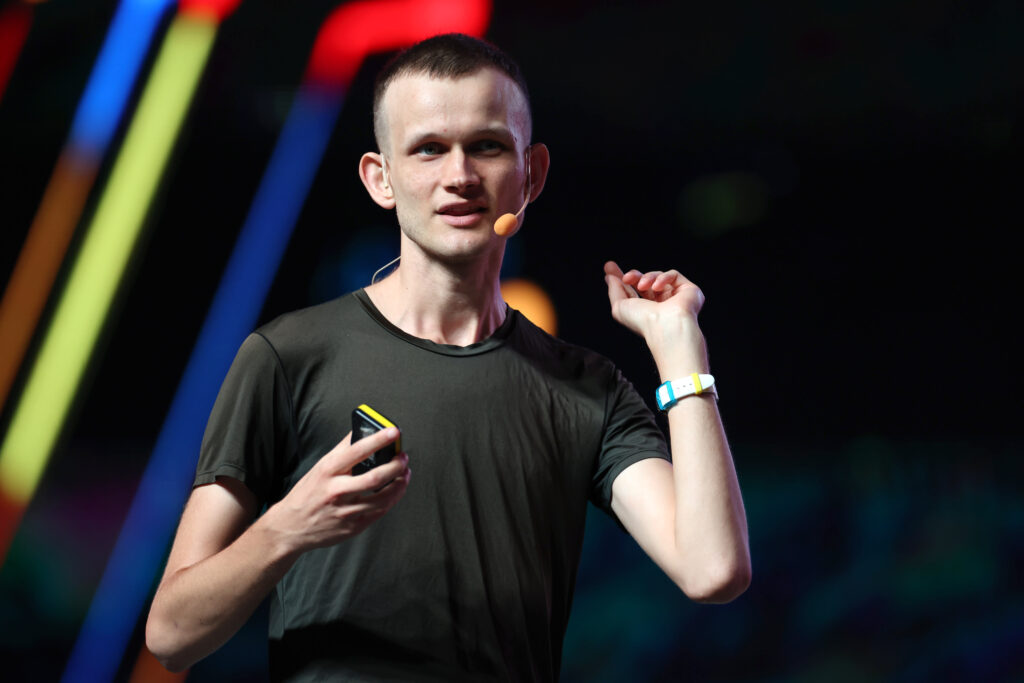Vitalik Buterin: The Visionary Behind Ethereum

QuickTake:
- Vitalik Buterin, a Russian-Canadian programmer, is renowned for co-founding Ethereum.
- Ethereum’s conceptualization as a “world computer” for decentralized applications (dapps) revolutionized blockchain technology.
- Buterin’s early interest in Bitcoin led to the creation of Ethereum, which supports smart contracts and a wide range of dapps.
- Ethereum’s success has catalyzed developments in decentralized finance (DeFi), token creation, and non-fungible tokens (NFTs).
Vitalik Buterin, a Russian-Canadian programmer and writer, is best known for co-founding Ethereum, a groundbreaking blockchain platform that has transformed the landscape of decentralized applications (dapps). His journey into the world of cryptocurrency began in the Bitcoin community, but it is his vision for Ethereum as a “world computer” that has solidified his reputation as a pioneering figure in the blockchain space.
Buterin’s Early Life and Education
Born in Kolomna, Russia, Buterin moved to Canada with his family at the age of six. His exceptional abilities in mathematics and programming were evident from a young age, leading him to advanced classes and later to the Abelard School in Toronto. This foundation set the stage for his future innovations in the world of cryptocurrency.
Buterin’s Introduction to Crypto
Buterin’s introduction to Bitcoin came in his late teens, thanks to his father, Dmitry Buterin, a computer scientist. His curiosity about Bitcoin quickly grew, leading him to earn Bitcoin by writing articles and eventually co-founding Bitcoin Magazine in 2012. This deep dive into the economic, technological, and political aspects of cryptocurrency sparked the realization that blockchain technology could be used for a broader range of applications. This insight laid the groundwork for Ethereum, which has since become a critical platform for dapps and smart contracts.
The Birth of Ethereum
While studying computer science at the University of Waterloo, Buterin wrote the Ethereum whitepaper in 2013. This document outlined a blockchain with a built-in Turing-complete programming language, allowing developers to create a wide array of applications on the blockchain. The whitepaper resonated with the crypto community, leading to the formation of a core team to advance the project by January 2014. An initial coin offering (ICO) of ether, Ethereum’s native currency, raised over $18 million to fund their efforts.
In 2014, Buterin’s academic path took a significant turn when he received a Thiel Fellowship, which provided $100,000 over two years to encourage young innovators to leave formal education and pursue their projects. Consequently, Buterin dropped out of university to focus on Ethereum. By July 2015, the Ethereum blockchain was successfully launched, offering a permissionless ecosystem that has since spurred innovation and development across various sectors.
Buterin’s Impact on Cryptocurrency
Buterin’s influence on cryptocurrency is immense. The launch, development, and widespread adoption of Ethereum have opened the floodgates for developers to build a diverse range of dapps, from finance to gaming. Ethereum has also played a pivotal role in the rise of decentralized finance (DeFi), revolutionizing financial services with decentralized lending, borrowing, and trading platforms.
The creation of tokens through Ethereum’s ERC-20 standard has led to the proliferation of ICOs as a new fundraising mechanism. Additionally, Ethereum’s support for non-fungible tokens (NFTs) has transformed digital ownership and monetization in fields like art, music, and gaming. By enabling new governance models through decentralized autonomous organizations (DAOs), Ethereum has further expanded the utility and influence of blockchain technology.
However, Ethereum’s success has also brought challenges. The high volume of transactions on the platform has led to congestion and increased transaction fees, prompting the development of alternative blockchains like Solana, BNB Smart Chain, and Avalanche, as well as Layer 2 solutions built on Ethereum.
Beyond Ethereum
Beyond his work on Ethereum, Buterin has significantly impacted the broader blockchain industry through his thought leadership and research. He has authored numerous papers and blog posts on topics ranging from cryptography and consensus algorithms to scalability and decentralized governance. His insights have enriched both the academic and practical understanding of blockchain technology, inspiring a global community of developers, researchers, and enthusiasts.
Recognized as one of the most influential figures in the cryptocurrency and blockchain industry, Buterin has received numerous accolades, including being listed in Forbes’ 30 Under 30 in 2018 and Time magazine’s 100 most influential people in the world in 2021. His philanthropic efforts are also notable, with substantial donations to COVID-19 relief, artificial intelligence safety, and various cryptocurrency-related projects.
Buterin actively supports emerging projects and ecosystems within the blockchain space, offering guidance, mentorship, and funding to new ventures. His ongoing contributions help cultivate a diverse and dynamic blockchain landscape, ensuring that the technology continues to evolve and address new challenges.
Conclusion
Vitalik Buterin’s journey from a curious teenager exploring Bitcoin to a visionary co-founder of Ethereum highlights his profound impact on the cryptocurrency and blockchain industry. His innovative ideas and relentless pursuit of decentralized solutions have not only shaped the development of Ethereum but also inspired a new era of digital innovation. As blockchain technology continues to advance, Buterin’s influence will undoubtedly remain a driving force behind its evolution.



